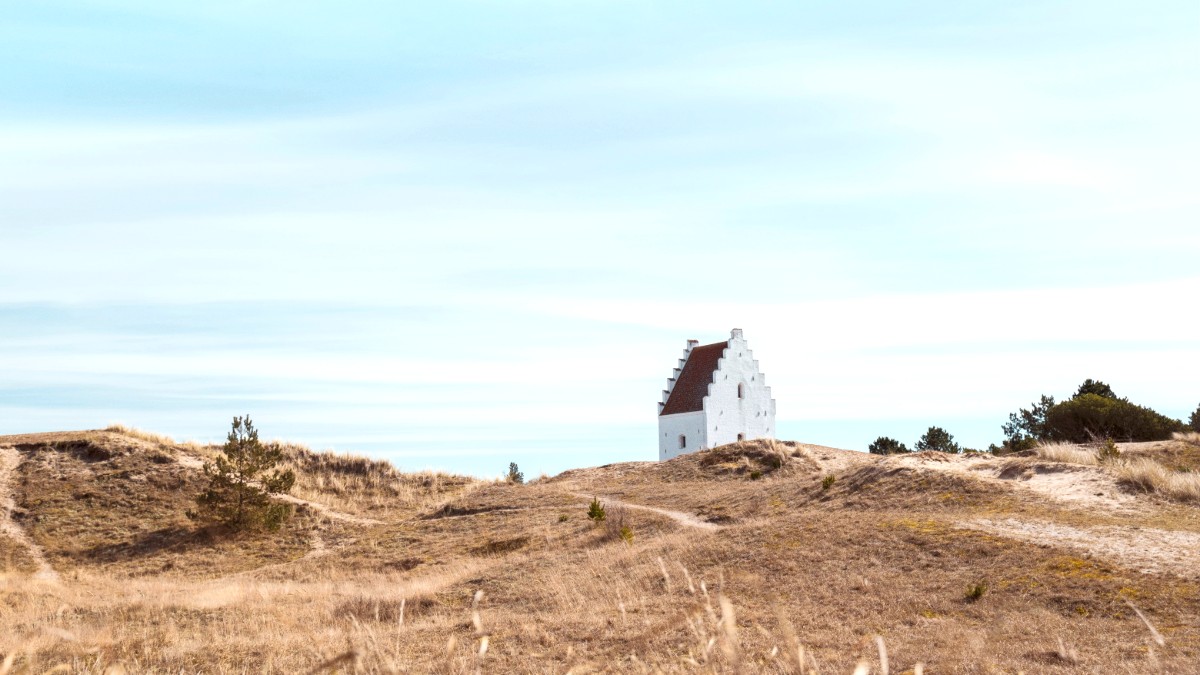
Jutland, Denmark
The Danish Krone (DKK) is the official currency. As of late 2023/early 2024, approximately 1 USD equals 6.9 DKK; this rate is subject to fluctuation, so checking current rates before your trip is advisable.
Credit and debit cards (Visa, Mastercard) are widely accepted everywhere, from supermarkets to restaurants and even small shops. Cash is less commonly used but is useful for small purchases or in rare instances where cards are not accepted. ATMs are readily available throughout Skagen. Inform your bank of your travel plans to avoid card issues.
A general guide to costs:
Hostel dorm: 200-350 | Budget hotel/B&B: 500-800 | Mid-range hotel: 800-1,500 | Luxury hotel: 1,500+
DKK 400-800 / USD 60-120
Hostel dorm or basic guesthouse (DKK 200-350)
Groceries from supermarkets, street food, or budget cafes (DKK 150-300)
DKK 800-1,500 / USD 120-220
Mid-range hotel or B&B (DKK 500-900)
Casual restaurants for most meals, with perhaps one nicer dinner (DKK 300-500)
DKK 1,500+ / USD 220+
High-end hotel or luxury vacation rental (DKK 1,000+)
Fine dining, full-service restaurants for most meals (DKK 500+)
Local bus ticket: DKK 20-40 (single fare). Train from Frederikshavn to Skagen: DKK 50-70. Taxi (short ride): DKK 100-200.
Skagen Museum: DKK 120-140. Anchers Hus: DKK 100-120 (often combined ticket with Skagen Museum). Det Grå Fyr (Skagen Lighthouse): DKK 50-70. Grenen: Free, but parking fees may apply (DKK 10-20 per hour). Sandormen (tractor bus to Grenen tip): DKK 40 (return).
Groceries at supermarkets are significantly cheaper than dining out.
Grenen, Den Tilsandede Kirke exterior, and the beaches are free.
Skagen is very walkable and cycle-friendly. Renting a bike is cost-effective.
Visit in shoulder season for lower accommodation prices and fewer crowds.
Some museums offer joint tickets at a reduced price.
Denmark is a very safe country, and Skagen maintains this reputation.
Denmark has a high-quality public healthcare system. EU/EEA citizens with an European Health Insurance Card (EHIC) receive coverage. Non-EU/EEA citizens should have comprehensive travel insurance.
Even in cooler or cloudy weather, UV radiation can be strong. The strong coastal winds can cause skin and lip irritation. If venturing into wooded areas, check for ticks.
Report lost or stolen documents to local police immediately. Then, contact your country's embassy or consulate in Copenhagen for assistance with replacement documents.
No specific vaccinations are required for entry to Denmark. Ensure your routine vaccinations (like MMR, Diphtheria-Tetanus-Pertussis, Polio, Chickenpox, and Flu) are up-to-date. Consult your doctor or a travel clinic for personal recommendations before your trip.
Risk of food poisoning is generally low due to high hygiene standards in Danish eateries. Stay hydrated, notably if active outdoors. No specific health-related entry requirements are currently in place for Denmark.
Check official Danish government travel advisories close to your travel date for any updates. Comprehensive travel insurance is highly recommended for all travelers.
UV radiation can be strong, even in cooler or cloudy weather, especially on reflective sand and water surfaces.
Apply broad-spectrum sunscreen (SPF 30+). Wear sunglasses and a hat.
Do not underestimate UV impact on overcast days.
The constant strong coastal winds can cause windburn and chapping of skin and lips.
Use moisturizers and lip balm regularly to keep skin protected.
Neglecting skin care may lead to discomfort.
If you venture into wooded or heathland areas, ticks may be present.
Check for ticks after outdoor activities. Consider repellent for clothing.
Ignore tick prevention at your own risk; some carry diseases.
| Category | Item | Consideration |
|---|---|---|
| Health | First Aid Kit | Basic bandages, antiseptics, pain relievers. |
| Essentials | Sunscreen & Lip Balm with SPF | High SPF is important due to coastal sun exposure. |
| Medication | Prescription meds | Original containers with doctor's note for customs. |